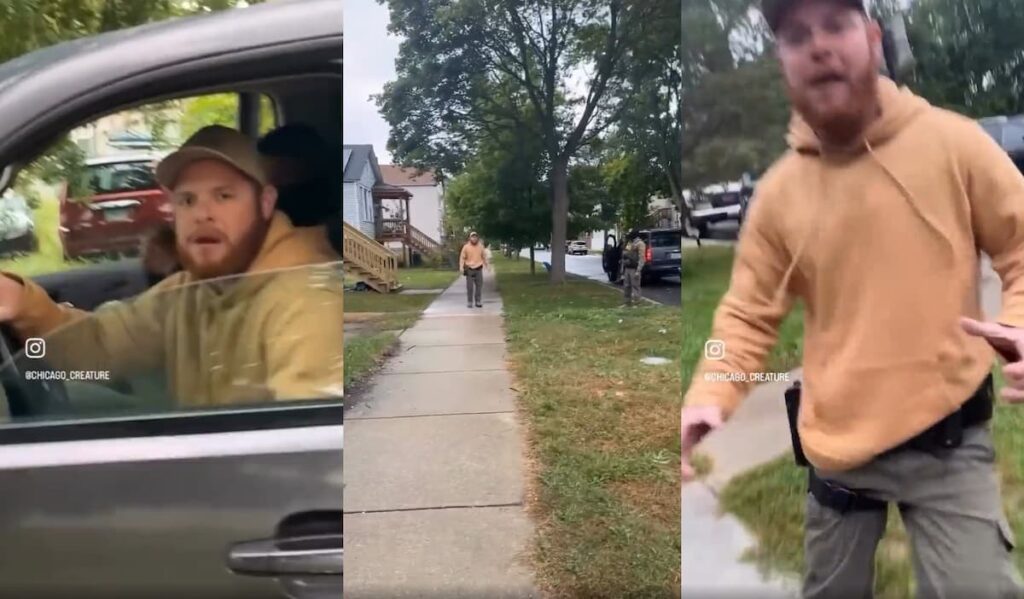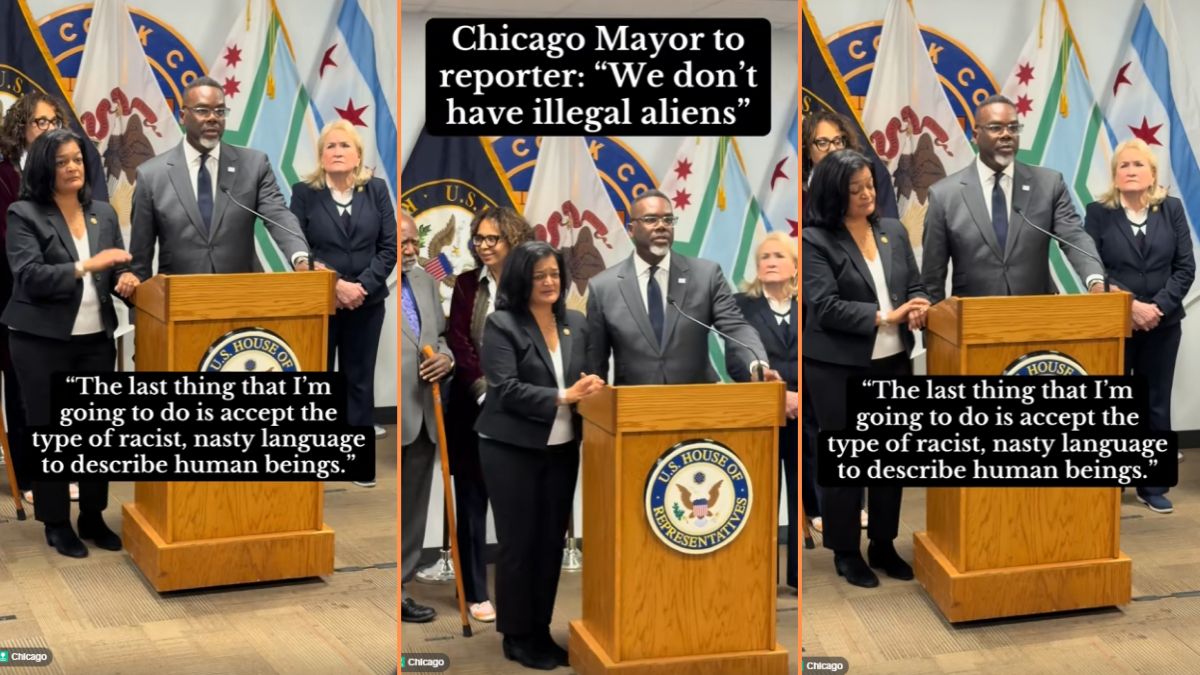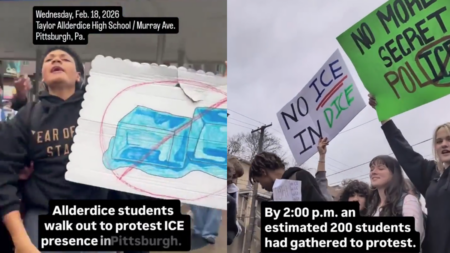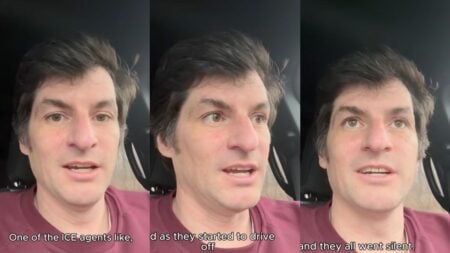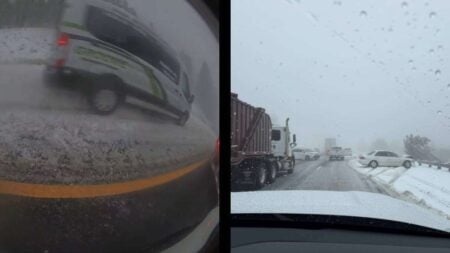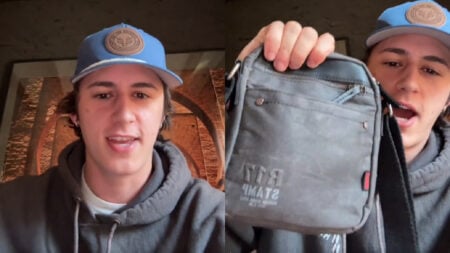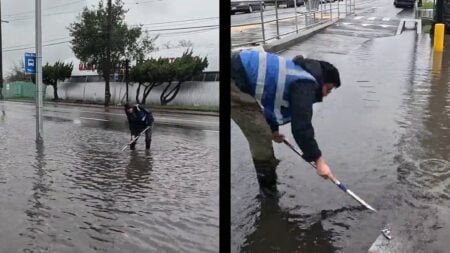A disturbing new video from Chicago, Illinois, is raising alarms over how far federal agents are willing to go to silence public scrutiny. The short clip, which first surfaced on Reddit, appears to show unmarked ICE agents confronting a man who was filming them, and then detaining him simply for recording. In the 53-second video, a dark civilian vehicle pulls up beside the man as he documents it with his phone. An agent leans out the window and says, “What’s up, brother? United States Border Patrol. Are you a citizen?” Seconds later, officers jump from the car and seize him as the camera keeps rolling.
The Reddit post, titled “ICE and CBP agents are patrolling in unmarked civilian cars; kidnapping and disappearing people for filming in Chicago”, quickly exploded across social media. Many viewers called the footage “terrifying,” comparing it to scenes from authoritarian regimes. “So… now you can’t record in public?” one user wrote.
Little is known about the man’s identity or what happened after his arrest, though several users speculated that he was later released. What’s clear, though, is that the video has reignited fears about unmarked federal vehicles operating in public spaces, which is a practice that drew national outrage during protests in 2020. In those instances, officers were accused of detaining people without clear identification, warrants, or cause, often claiming vague “federal enforcement” authority.
Recording law enforcement in public is generally protected under the First Amendment, provided the act doesn’t interfere with official duties. But ICE and CBP’s use of plainclothes agents and unmarked vehicles blurs that line, making it difficult for citizens to know when they’re witnessing legitimate enforcement or intimidation tactics. Legal experts have warned that such tactics can have a chilling effect on free speech and public accountability.
“This is an extrajudicial power grab,” one commenter argued. Another wrote that “Hell is not hot enough for these pieces of garbage,” while others invoked historical comparisons to fascist regimes and “brownshirts.” The tone of the conversation reflects a growing sense of unease over the normalization of aggressive, secretive enforcement tactics on U.S. soil.
For now, the video stands as yet another viral flashpoint in the ongoing debate about federal power, civil liberties, and the right to record. Chicago has long been a hub for activism, but this latest incident underscores the risks faced by anyone who dares to document authority in public. Whether the man detained in the video walks free or faces charges remains unclear.

